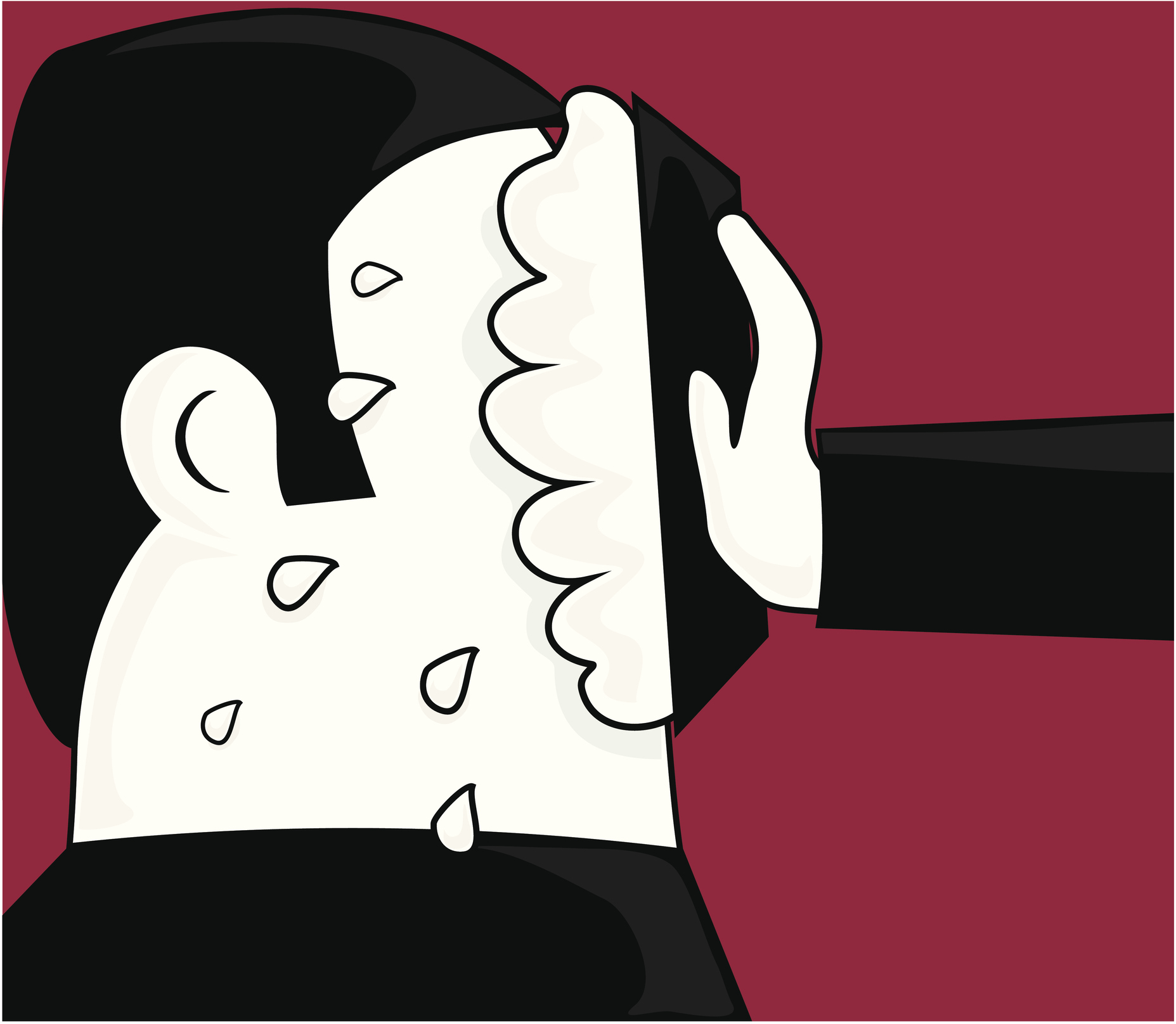
By Hon. James M. Redwine (Ret.)
A friend once asked me, “What do they teach in law school?” He diplomatically did not ask, “What did you learn in law school?”
I told him that what law schools hype as their “product” is legal thinking, i.e., “Come here and we will teach you to think as a lawyer.”
Now I do not know about you, but when I heard that claim from my law professors, I got less meat from it than from cotton candy. My recurring thought was that if it took three years of agony to gain this one esoteric concept, why bother?
However, since everybody has to be somewhere, and I was in law school (in the late 1960s), I determined that if lawyers thought so differently, I would try to understand their approach.
I learned that the essence of legal thinking, as taught in law school, consists of three principles:
YEAR 1: CONSIDER MATTERS FROM ALL SIDES (“OBJECTIVE ANALYSIS”)
My freshman year was spent with professors who thought they were Socrates but who were, in fact, acolytes of the Marquis de Sade.
Each class started with a statement of the general idea that we should look carefully at cases from every angle. The rest of the semester was spent humiliating us into doing so.
Alas, if one of my brothers who went to law school before me had told me the following story before I finished my freshman year (instead the summer after), I could have started with Year 2.
This was my brother Phil’s explanation of objective analysis:
“A man comes to see his lawyer about a divorce. He tells the attorney that every time he tries to go upstairs to their bedroom, his wife kicks him back down the stairs. The man says, ‘I don’t think she loves me anymore.’ The legally trained attorney responds, ‘Either that or she just doesn’t want you upstairs.’”
YEAR 2: REASONING BY ANALOGY
Law schools pride themselves on teaching “analogical analysis.” This means deducing the proper decision in a case by examining a prior case with similar facts.
So, on Day 1 of Year 2 in law school you might hear the following lecture from some ogre who never practiced law himself or herself but is confident they know how to teach others to do so:
“Class, in the 1800s the American whaling industry was in full bloom. During a particular whaling expedition, one company of ships had come upon and surrounded a pod of whales and was in the process of harvesting them when another whaling company’s ships appeared.
“Some of the whales escaped the first company’s encirclement and were then captured and harvested by the newcomers. The first company sued for loss of the whales.
“A court decided in favor of the second company on the basis that the whales were feral, wild in nature, and were equally available to all as long as they were not taken from the possession of another.”
Then the devilishly devious law professor would say, as if cautioning grade-schoolers to remember to have their crayons and scissors handy at all times, “Keep this case in mind.”
We, or at least I, would then doze off as our brains glazed over listening to the drone of information about how judges can be led by well-trained lawyers to decide current cases by reference to similar past cases.
Then some poor sacrificial lamb would be called upon, in front of the entire class.
Let’s assume his name is Jim Redwine.
“Mr. Redwine, at the beginning of the American oil and gas industry, one company (One) drilled a gas well, but the gas escaped its well and was collected by a rival company (Two) nearby. Company One sues Company Two for the return of the gas. You are the lawyer for Company Two. How do you convince the trial judge to rule for your client?”
There I am, struck dumb in front of all those witnesses. Sweat forms on my brow and panic rises in my throat. Of course, the tender and understanding law professor slowly twists the knife with more vague and arcane questions as my classmates squirm in thanksgiving that they were not called on and in fear that they soon will be.
“Uh, would this have anything to do with the crises in the Middle East or OPEC?” I guess.
With an air of disdain and weary superiority, Professor Vlad the Impaler informs me that my Hail Mary has landed in the stands. The escaping gas is like the escaping whales, equally available. “Get it?”
My thought was and still is, why not just explain this to law students at the beginning and skip the water boarding?
YEAR 3: STARE DECESIS
Foreign phrases are to law professors as magic elixirs are to snake-oil salesmen.
Law students do not find this out until after law school, but some of those who teach law are doing so only because they were afraid to try practicing law, or they tried and failed. For those types, Latin covers a multitude of sins.
One of the dangers of teaching law students to think as a lawyer is that after the first two years, they may actually start to do it.
By their third year, some students begin to realize that some law professors are as irrelevant to practicing law as is that two-day torture that follows law school, the bar examination. Therefore, in the third year some professors are more likely to obfuscate with Latin.
Stare decisis is a Latin phrase that means to stand by the decision or follow earlier court decisions, i.e., follow precedent. Say you were the judge in a case involving an interest in real estate given under a dead person’s will. As a normal person, you might think all that would be required to make sure the dead person’s wishes were carried out was to read the will. And most of the time you would be correct.
But what if the dead person was trying to save his or her heirs from paying taxes? You might have to look to past cases where other judges decided similar issues – the Rule in Shelley’s Case from 1581 in England, for example. And since American law was based on English law, the old cases could go all the way back to the time of the Battle of Hastings in 1066.
Now, let’s assume that instead of being the judge – who is, after all, totally immune personally from any bad effects of his or her decision – you are one of the heirs of the decedent. How would it make you feel to know that your judge was looking for an answer in cases decided before Columbus stumbled upon some islands in the Caribbean?
Say you went to your doctor because you had an excruciating stomach ache from appendicitis. If your doctor pulled out a 1,000-year-old parchment and prescribed bleeding, gold potions and leeches, you might be a little concerned.
But American judges are trained to look to precedents in history to decide present cases. If there had been an earlier case with laws and facts similar to the one you are involved in, the trial judge would be obliged to follow that decision unless it could be distinguished from your case. Your attorney might face the challenge of convincing the judge that the Rule in Shelley’s Case from 1581 is as irrelevant to your situation as Latin phrases are in today’s world.
On the other hand, your attorney may be a future law professor who has not yet realized he or she cannot and should not be entrusted with real people’s lives.
ACTUALLY LEARNING LAW
We have now demonstrated that law school is to teaching the practice of law what Dante’s Inferno is to describing heaven. But unlike Faust, Paradise need not be Lost. Law can be taught. It is, in fact, learned every day after an attorney graduates from law school and begins working with lawyers, and even judges.
Regardless of your line of work (unless you are a law professor), you probably did not have a clue how to do the job you are now an expert in until you started doing that work under the watchful eye of an experienced mentor. If you were a law student taught by law professors and you went straight from law school to teaching law students, your inbred training simply carried on.
But let’s say you were a nuclear physicist with a Ph.D. You might go to work for NASA, where the other physicists on staff would teach you how to put a mouse on Mars. No one would put you in charge of rocket propulsion straight from college.
The same is true if you were a cowboy. You might have a doctorate in animal husbandry from Oklahoma State University, but you would not be a real cowboy until experienced cowhands showed you the difference between a soon-to-be-steer and a heifer and taught you how to create the former without injuring the latter.
The same is true with legal education. Lawyers learn from experienced lawyers and experienced judges. It is the system used at The National Judicial College. The overwhelming majority of courses involve more experienced judges sharing their acquired wisdom with less experienced judges.
It is a system that has given us about half of our United States presidents who had legal backgrounds, including Abraham Lincoln. Unlike law school, it is a good system.

Hon. Diane J. Humetewa, the first Native American woman and the first enrolled tribal member to serve as a ...

Retired Massachusetts Chief Justice Margaret H. Marshall has been selected as the 2024 winner of the presti...

Dear Gaveliers Fans: I am delighted to announce the appointment of our first Gaveliers coaches, profiled...

Fans, I could not be more proud of the work our players put in over the summer. The difference between h...

As the 2024 Election moves in to its final weeks, just over half of trial judges who responded to a survey ...
